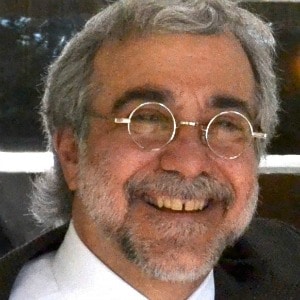
7-18-2012
Understandably, neither Randy Michaels nor Walter Sabo was available for comment yesterday. It wasn’t a banner day for the two men who claimed a new format was going to take the industry by storm. Merlin Media made a big splash in the Windy City about a year ago with big investor money, a rare new radio idea, and a lot of excitement built around a staff of news gatherers hoping to be part of something transformative. Yesterday, that all came crashing down. With Sabo long gone from the company — a relationship with Michaels that never clicked — and several iterations of a format incredibly expensive to run, the all-news experiment at Merlin ended Tuesday with pink slips in Chicago and New York City. Ratings were non-existent, listeners couldn’t latch on to a moving-target news delivery, and advertisers were few and far between. Word is, many millions of dollars were lost on this project. And so now, both stations are playing music. Far less expensive to operate, but certainly not new, innovative or exciting.
So what went wrong in the Windy City? Is CBS just too strong at news? Did the investor group force Michaels to make a change and stop the bleeding? Was it an ever-changing vision? A lack of vision? Probably a combination of all. Somebody familiar with the situation told us yesterday, “The station in Chicago was just unlistenable.”
In July 2011, after leaving WGN, Charlie Meyerson got a call from Andy Friedman. Friedman was one of the many, some say too many, people running the Merlin Chicago operation. When Meyerson received his envelope yesterday it wasn’t one of the 16 containing employment agreements to spin Classic Hits records. After all, Meyerson is a veteran newsman in Chicago, so he probably wasn’t expecting to be part of a music station.
“I think people were braced for change. I think many of us were surprised at the nature of the change that was announced, which you know about. I don’t think Hot Hits was on anybody’s radar. Certainly on the radar of no one that I knew.”
Meyerson was not part of the management team. He was out on the street as a reporter, covering the news in Chicago. He offers this opinion on what went wrong.
“There are as many theories of what went wrong as there are people who worked there or people who listened. I think the station went through so many transformations over the course of the year that at any given point it was someone’s vision of what the station was supposed to sound like. There were a lot of cooks in this kitchen. Some of the cooks got their way some of the time and some of the cooks didn’t get their way some of the time. More talk. Less talk. More live. Less live. A lot of stuff was tried. For whatever reason, maybe because we tried so many different things, it didn’t stick. It didn’t catch. Maybe none of those combinations, if left untouched, would have gained traction, or maybe one or more of them could have. But it didn’t happen.”
Of the original attempt to target women, Meyerson says, “The consensus among many of us was that the first attempts to target women sounded condescending. I don’t think they intended it to be condescending, but they sounded condescending. Yet I know many listeners that liked that iteration of the station.”
Meyerson also says some things went right.
“This little start-up operation which came from nowhere won a regional Edward R. Murrow Award for three hours of non-stop commercial-free coverage of the sentencing of Rod Blagojevich last fall. We had barely been together weeks but we pulled out all the stops. We had reporters all over town. We had analysis lined up on the phone. We had many talented journalists with decades of experience at the microphone. It was great coverage. It won the [RTDNA] Murrow award and it won the Illinois Broadcasters Association Silver Dome Award for best live coverage of an event. In my mind, that was kind of the pinnacle of what this station could do. It was free form, it was live, it was intelligent, it was informative. It was the essence of what news radio can do that other media can’t.”
What about CBS? Was CBS jus too dominant at the news game to compete with?
“In this market, at this time, executed in this way, it didn’t make a dent in CBS’s ratings,” Meyerson admits.
“Personally, I believe in much of what the philosophy of this organization has been. Which is to say I think the audience is migrating to FM. I think as the FM audience becomes older, the demand for news on FM will become stronger. I believe that radio does news as few other media can. The success of news on CBS stations, on National Public Radio stations, shows that people do want information on the radio and, particularly in the case of NPR, on the FM dial. I expect and I hope that this won’t be the last attempt at a news-intensive format on the FM dial in Chicago. I believe there is an audience there for it. Anecdotally, friends, casual acquaintances, strangers on the street would see my ID card. They would tell me they love the station. In any of its incarnations, they loved it. They wanted it to succeed. I think that there is potential for a new intensive FM station to succeed in Chicago. I am sorry this one didn’t. I don’t think it is the last.”
And, finally, looking back on the year he spent with Merlin, Meyerson looks at it positively, saying it was an opportunity he and his colleagues never expected.
“Who would launch an all-news station in Chicago against WBBM, successful as it was? Who would give an opportunity to a lot of young and untested people who, in some cases, hadn’t done radio before? Who would give old fogies like me a chance to teach what we know to the next generation of communicators and get paid to do it? It was an unprecedented opportunity. Even today, I think the consensus among the people [dismissed Merlin employees] I talk to was, ‘What a great ride. What fun we had.’ Yes, things changed all around us and the station had a hard time settling on what it was going to be, but it was never boring. We built something out of nothing. We learned, all of us, a hell of a lot. In many cases, and I think so in my case, we are better positioned, with stronger, sharper skills than any of us had a year ago to go on and create something new again, somewhere else.”
(Pictured is Charlie Meyerson, photo courtesy Nicole Willis)
Charlie Meyerson is a veteran radio newsman and can be reached at 708-628-4527 or [email protected], on Twitter: @Meyerson or at his blog,https://meyerson.blogspot.com





